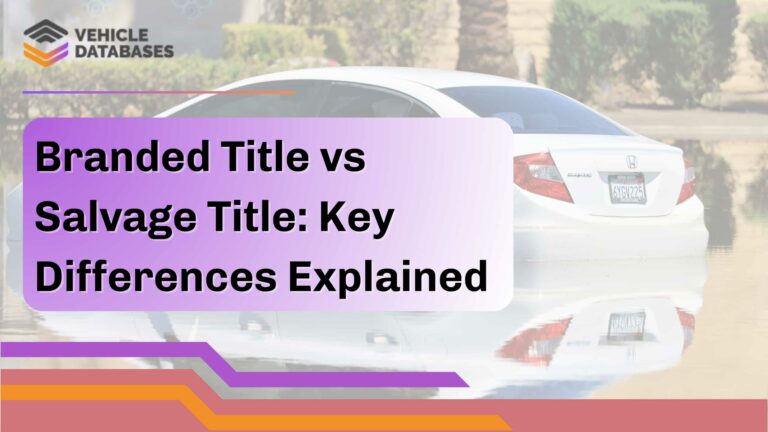Starting a used car dealership can be exciting, especially when considering how profitable it can be if you play your cards right. Projection Hub says the typical used car dealership earns around $4 million in annual sales.
Sounds like a lot, right? Well, you see, it really isn’t. To achieve this, a dealership typically sells around 120 vehicles per year, averaging about ten sales per month at an average price of $33,000 per vehicle. You see? You can even beat this number and get even more sales. More car sales equals more profits.
So, how exactly can you start a used car dealership? This article explains it all.
What is a Used Car Dealership?
A used car dealership is a business that specializes in buying, refurbishing, and selling used vehicles. Its primary purpose is to provide customers with quality cars at a reasonable price. In addition to price, dealerships also offer several financing options to make buying easier for customers.
But, there are different kinds of dealerships, and if you want to start a successful one, you need to understand each one and pick the best fit for your goals and resources.
Types of Used Car Dealerships
These are the various types of dealerships available to choose from:
Independent Dealerships
Firstly, we have independent dealerships that operate without affiliation with major automotive brands. They often provide a wide range of used vehicles at competitive prices but may lack warranties for specific brands.
Franchise Dealerships
Franchise dealerships are authorized dealers of specific manufacturers, such as Toyota, Tesla, Honda, etc. They have the brand names as part of their dealership names, so you can tell it’s a franchise. The automaker sponsors things like adverts, training, etc., and is always part of the decision-making process.
Online Dealerships
We also have online marketplaces that are very popular in today’s world. These allow customers to browse and purchase vehicles from the comfort of their homes. With the help of technology, car buyers can even test these vehicles out virtually without the need to visit the dealership.
Wholesale Dealerships
A wholesale dealership sells cars to other dealerships and not to the general public. They can purchase from car auctions or private sellers and then sell these used cars to other dealerships to make a profit. They often deal in bulk and may offer lower prices due to the volume of transactions.
Certified Pre-Owned (CPO) Dealerships
Every certified pre-owned vehicle is a used car, but not all used cars are certified pre-owned. This means that if you want to start up this kind of dealership, you can only sell used cars that meet specific manufacturer standards for quality and come with extended warranties.
Buy Here Pay Here (BHPH) Dealerships
Last on this list are BHPH dealerships. A buy here, pay here dealership is designed for buyers who may have a hard time securing financing to purchase a vehicle. So, these dealerships typically don’t carry out credit score checks but check if buyers can afford monthly payments.
Choosing the Right Type of Used Car Dealership
After checking to see which auto dealership best aligns with your targets, you should also consider a few important factors, including:
- Your budget
- Used car market demand
- Personal preferences.
For example, if you have limited capital, you should think of starting up an online dealership or perhaps an independent dealership. If you prefer to be supported by a brand, a franchise is the best option for you.
READ ALSO: How to start your used car business by utilizing APIs
How to Start a Used Car Dealership From Scratch
When you’ve made up your mind on what type of dealership you want, you will need to take the following steps to make sure everything goes smoothly. The necessary steps to open a used car dealership of your own are:
Analyzing the market
The first step to take before you even go into the industry is to conduct thorough research and understand industry trends. Finding out more about the target audience will give you a better idea of your choice of stock, brand identity, age group, interests to meet, and more.
Is there a demand for fully electric vehicles? Would buyers prefer a particular engine type? Is there a particular brand with high demand? These are some questions to ask yourself during this research stage.
You should also pay a lot of attention to the competitors in the area. How many used car dealerships operate in your area, and what services or products do they offer? The answer to this question will show you how difficult or easy it would be to stand out.
Creating a business plan
After the initial research stage, the next step is creating a business plan. Writing and researching a business plan gives you a chance to think clearly about how you want the car business to be financed, structured, and operated.
You know starting a car dealership is a serious investment, so you must cover everything, including:
- Executive summary
- Details about your company and the team you’d like onboard
- Market analysis
- Market strategy
- Products and services to provide
- Financial costs and expected revenue
- Logistics and operations plan
Obtaining financing for your dealership
The capital investment required to start a dealership is one major reason why many entrepreneurs turn away from owning one. But the truth is, it’s just like every other business venture and several finance options are available for consideration.
You just need to be sure of the startup and running costs and present this information to finance outlets confidently. Some of the costs to pay attention to are:
- Business registration
- Car dealer license
- Rent costs or purchase
- Payroll
- Inventory cost
- Dealership bond
- Office furniture and decor, and more.
Some sources you can count on for finance are investors, business loans, equity partners, and even your personal savings.
Getting the necessary permits and dealer licenses
In most states, you will need to register your business and get some permits and licenses from the DMV before you can become a used car dealer. Depending on the state, you may be required to have some of these licenses and permits:
- Business license
- Dealer’s license
- Sales tax permit
- Employer identification number (EIN)
- Surety bond
- Zoning permits
- Insurance coverage
With these permits and licenses covered, your business should be good to go.
Choosing the right location
The business location is an essential part to consider and can determine how profitable your new car dealership business will be. You need to check for a location that is easily accessible by customers. You should make sure it is highly visible as this can help attract potential car buyers and significantly boost your business.
Try not to be too close to another dealership. People may pick the other option since you’re comparatively newer and may not have gotten their entire trust yet.
For the building, you should rent or purchase one with appropriate facilities like garages and showroom space. Make sure you have good signage and other branding materials to attract customers.
Building the inventory
This is the part many people don’t like to talk about; “the inventory”. You need a large inventory in your used car lot if you want to attract customers but you can start small and grow with time. Focus on used cars that are most likely to be purchased based on your market research and analysis.
Don’t forget to also make the office as inviting as possible with a good choice of admin supplies, furnishings, tools, desks, chairs, table, computers, and other office supplies.
Equipment and technology
Talking about supplies, you need tech tools and access to data more than you need office supplies. With the right information from auto databases, you can capture any customer’s attention and prevent dealing with damaged and stolen vehicles.
Application Programming Interfaces (APIs) are the easiest way to access databases, and Vehicle Databases have the easiest-to-use APIs. The best picks for you are:
- Sales history API: For checking sales history records of used vehicles.
- Vehicle history API: For checking full history records including ownership history, theft records, accident history, damages, and more.
- Market value API: For verifying the trade-in, private party, and dealer retail values of all vehicles.
With access to these APIs, auto dealers can gather vehicle information in minutes. Try it out now with 15 free credits.
Is Owning a Used Car Dealership Profitable?
Owning a used car dealership can be profitable, with average gross profits per vehicle around $2,337. If a dealership sells about ten cars per month, it could generate nearly $3,960,000 in annual revenue. This means we’re looking at potential annual profits between $280,440 and $530,640.
Although this is an average value, you need to understand that the overall profitability of your dealership will depend on many factors, including market demand, operational costs, and competition from both traditional dealerships and online platforms.
Conclusion
Starting a used car dealership involves careful planning and execution. By understanding the various types of dealerships available, analyzing your market, creating solid business plans, obtaining necessary permits, and utilizing technology effectively, used car dealers can set their businesses up for success.
Remember that transparency with customers is important and APIs can help you provide all vehicle records, specifications, and features instantly. Get started with our APIs today.
Frequently Asked Questions
Is a used car dealership profitable?
Yes! A well-managed used car dealership can be highly profitable. You just need to make sure you provide high-quality used vehicles and excellent service.
How to grow a used car dealership?
Focus on improving customer experience through excellent service and using technology for efficiency. Also, expand your marketing efforts to reach more potential buyers.
Do VIN numbers show previous owners?
Yes! Vehicle Identification Numbers (VIN) can provide details about previous owners when checked with the right tools and databases. For instance, our Vehicle History API can give instant access to ownership records after successfully integrating the API with your website or mobile application.




